When working with contractors, it's essential to ensure that their past performance aligns with your project needs. A trade reference verification letter can be a crucial tool in assessing their reliability and quality of work. In this article, we'll explore the key components of a well-structured letter that will not only streamline your verification process but also help you build trust with your contractor before the first nail is hammered. So, let's dive in and discover how you can craft the perfect letter for reference verification!

Contractor's Name and Contact Information
Contractors often require trade reference verification to establish credibility in their field. The contractor's name, such as John Smith Construction, is essential for identification. Contact information includes a valid phone number, like (555) 123-4567, and an email address, such as john.smith@construction.com, providing a direct line for inquiries. Additionally, a physical address, such as 123 Main Street, Springfield, is vital for potential clients to correspond or visit the contractor's business location. This verification process enhances trustworthiness in the competitive construction industry, allowing clients to assess past project performance and reliability.
Project Details and Scope
The contractor trade reference verification typically encompasses an overview of specific project details and scope. For instance, a commercial construction project in downtown Los Angeles, California, may involve the development of a 15-story office building covering approximately 200,000 square feet. Key phases of the project may include site preparation, foundation work, and structural framing, adhering to a budget of approximately $30 million. The contractor's responsibilities also include ensuring compliance with local regulations, safety protocols, and sustainable building practices. Coordination with various subcontractors, suppliers, and inspections from local authorities is crucial for maintaining a timeline of 18 months from groundbreaking to completion. Documented project management processes, including scheduling, budget tracking, and quality control, play a significant role in achieving successful outcomes.
Quality of Work Assessment
Reliable contractors play a critical role in ensuring the successful completion of construction projects. Evaluating their quality of work is essential for maintaining high standards in the industry. A thorough assessment may include reviewing recent projects, such as residential buildings or commercial establishments, where workmanship and materials were pivotal. Metrics such as project completion timelines, adherence to budgetary constraints, and compliance with safety regulations are vital indicators of quality. Additionally, client testimonials highlight communication effectiveness and problem-solving skills demonstrated throughout the project lifecycle. Noteworthy examples include sustainable building practices that align with LEED certification standards or innovative techniques that enhance structural integrity. Analyzing these factors provides a comprehensive view of a contractor's reliability and proficiency in delivering superior results.
Timeliness and Adherence to Deadlines
Contractors often rely on timely deliveries and adherence to project schedules to ensure smooth operations. Timeliness in construction projects can significantly impact overall success, influencing factors like budget, client satisfaction, and future opportunities. Adhering to deadlines typically reflects a contractor's work ethic and reliability, with an average industry standard for completion ranging between 75% to 90% on time. The construction industry, particularly in cities like New York and Los Angeles, heavily emphasizes the importance of efficient time management, as delays can lead to financial penalties and strained client relationships. Prompt communication regarding project milestones and any potential setbacks is essential for maintaining trust and transparency between contractors, subcontractors, and clients alike.
Communication and Professionalism
Communication and professionalism are critical components in the relationship between contractors and clients. Effective communication can enhance project efficiency, ensuring timely updates and clear instructions, which can prevent delays and misunderstandings. Professionalism, reflected in punctuality, respect for budgets, and quality workmanship, reinforces trust. In the construction industry, adherence to safety standards and regulations (such as OSHA guidelines) demonstrates a contractor's commitment to responsible practices. Client testimonials often highlight these aspects, providing insight into a contractor's reliability and expertise, which is essential during reference verification processes. Metrics like response time, project completion rates, and customer satisfaction scores serve as benchmarks for assessing communication effectiveness and overall professionalism.
Letter Template For Contractor Trade Reference Verification Samples
Letter template of Contractor Reference Verification for Credit Assessment
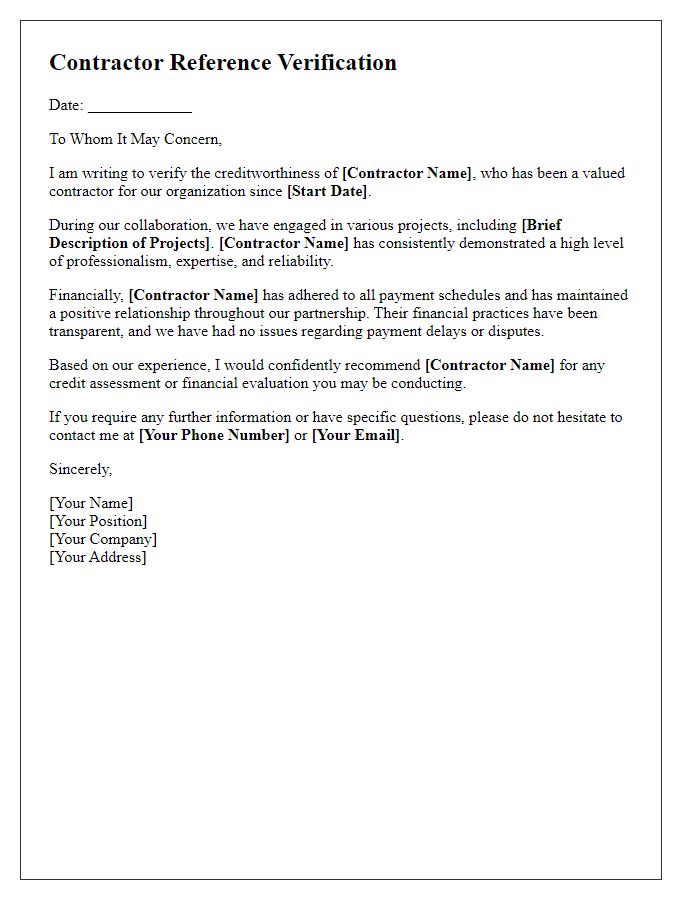
Letter template of Contractor Reference Verification for Project Evaluation
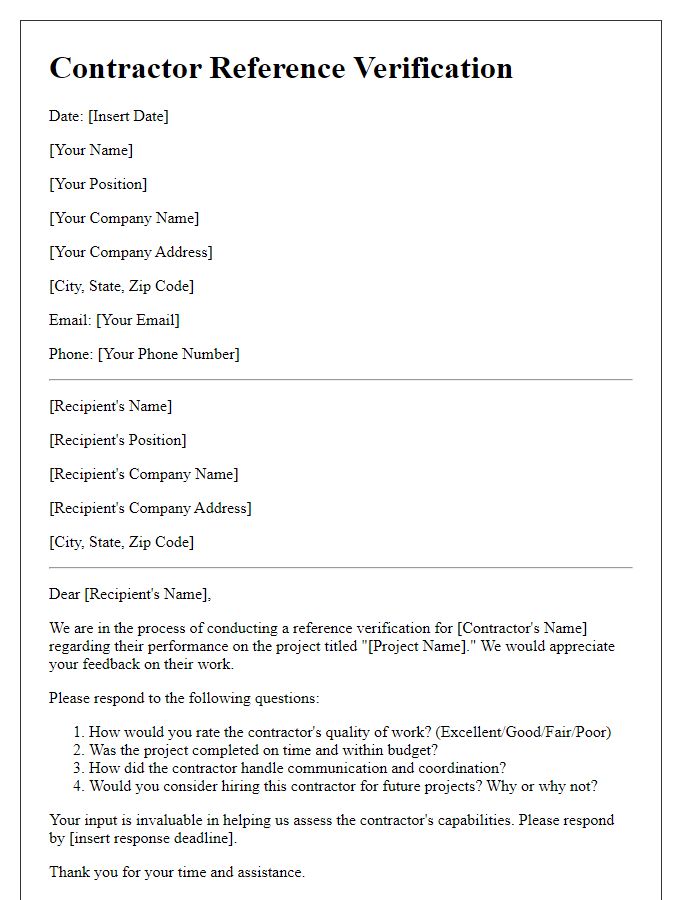

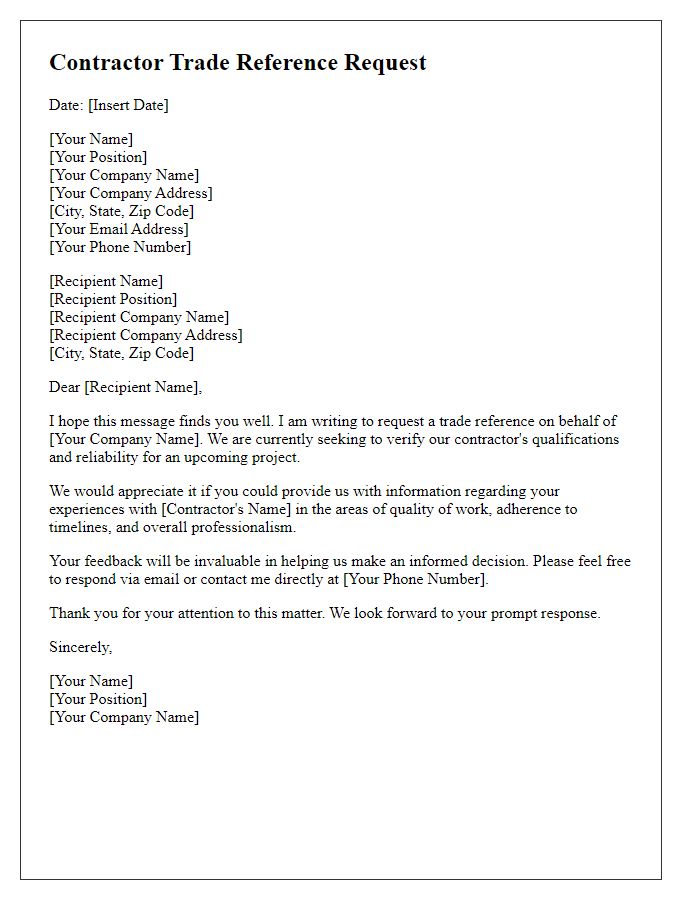
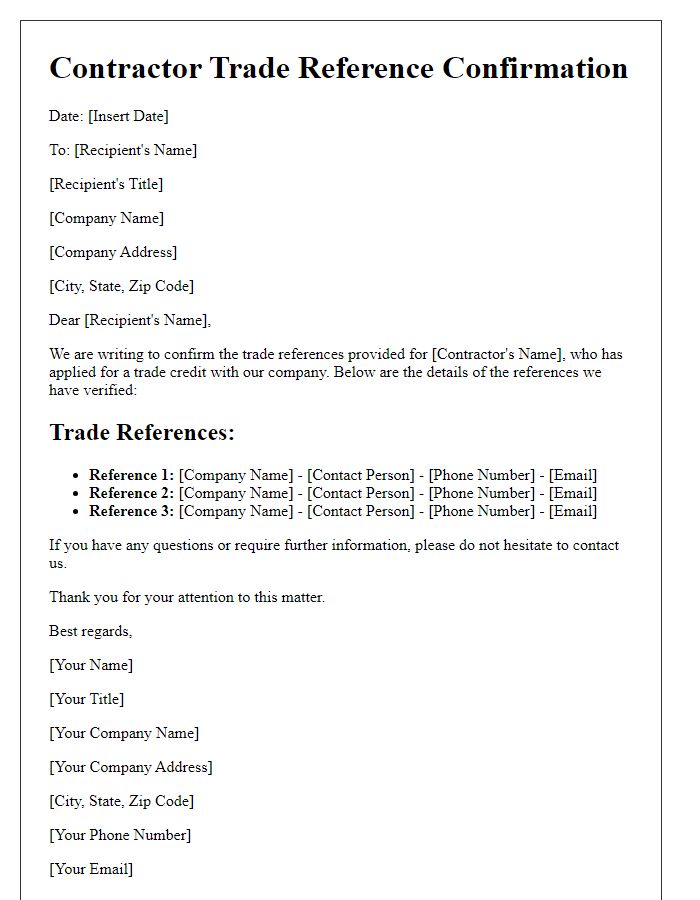
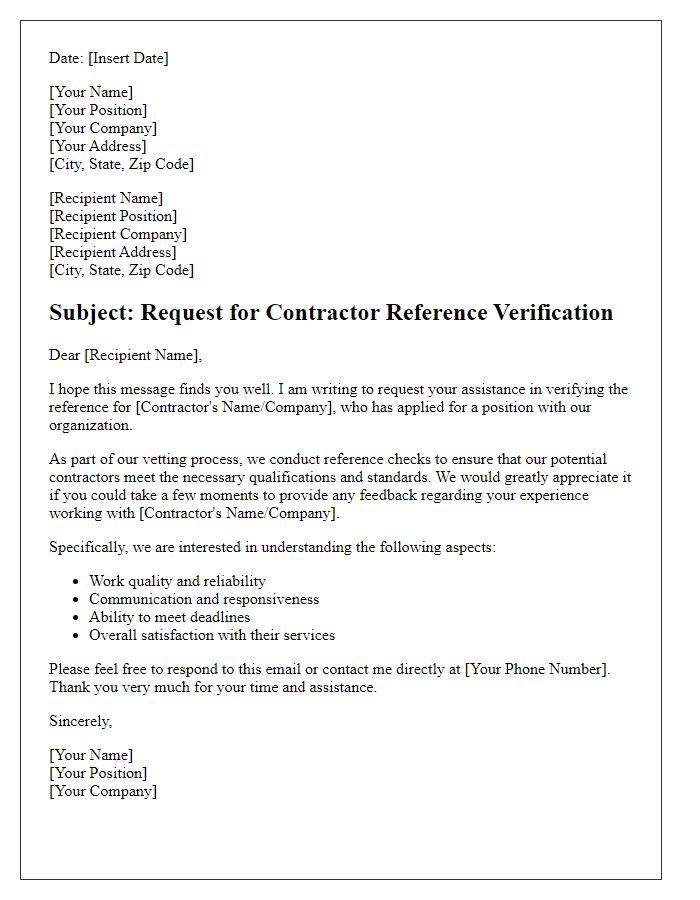
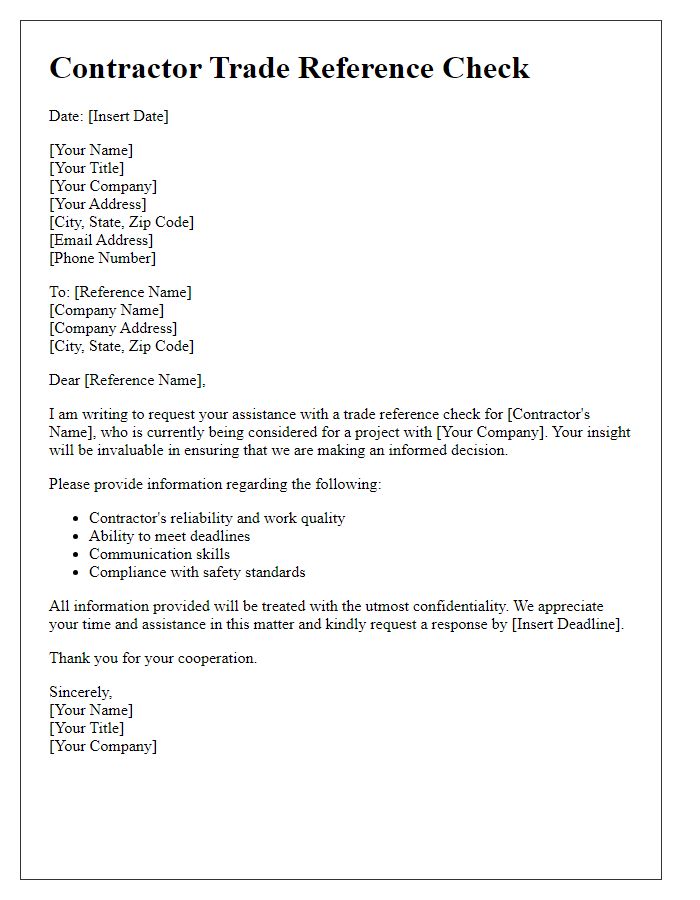
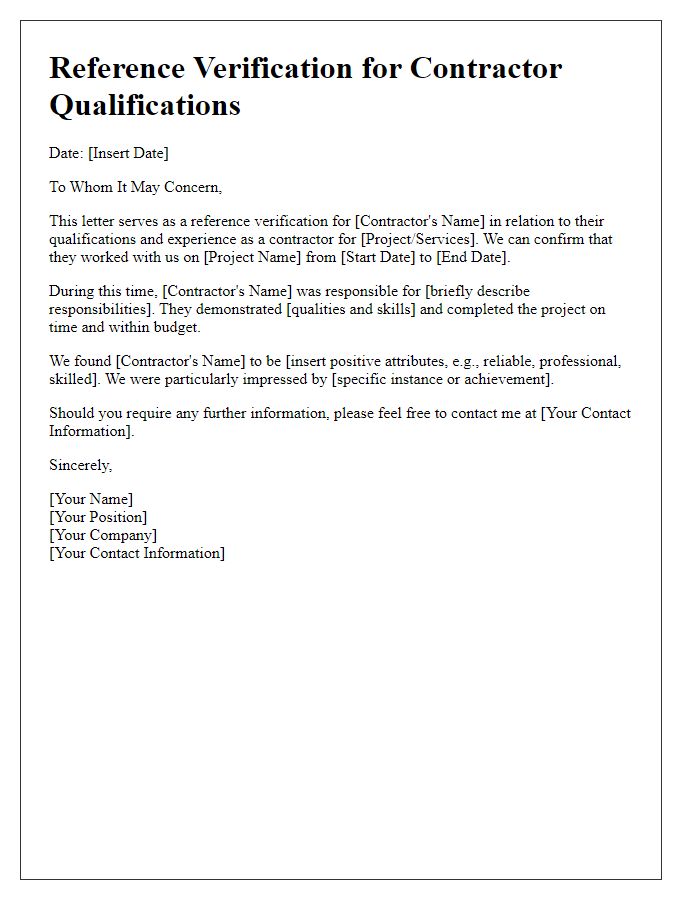
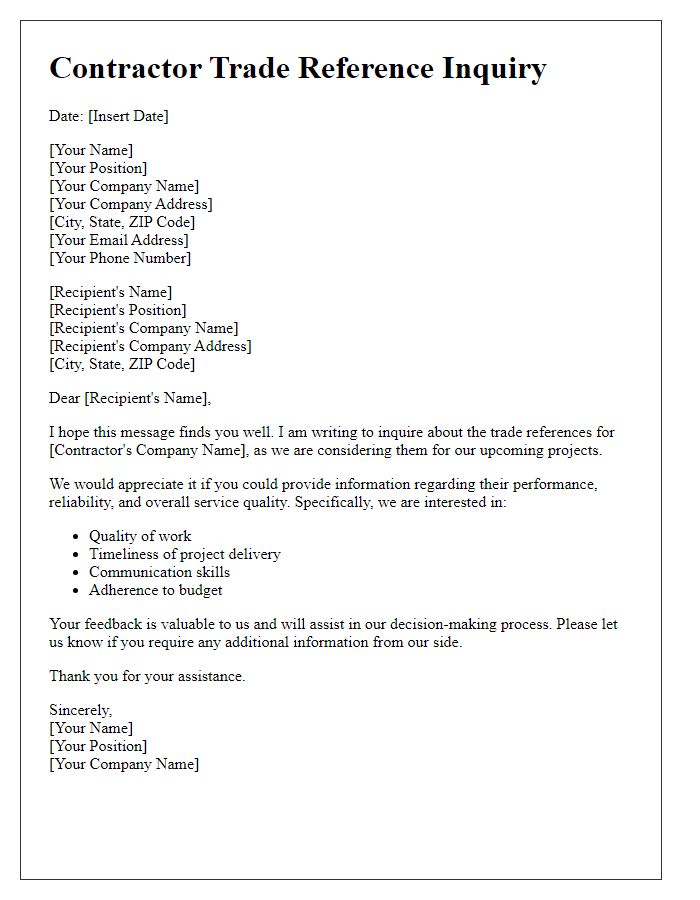
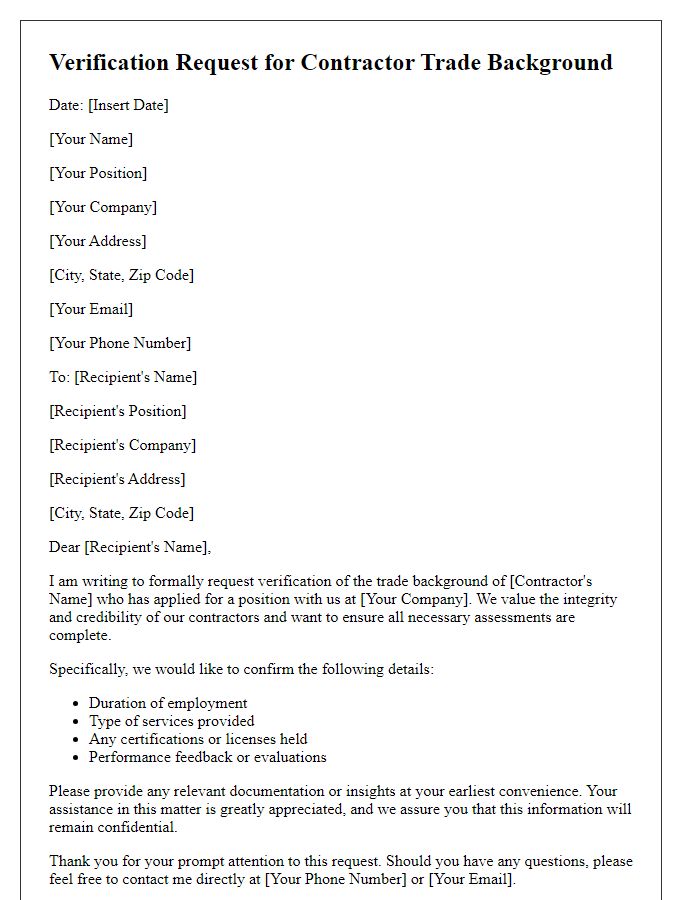
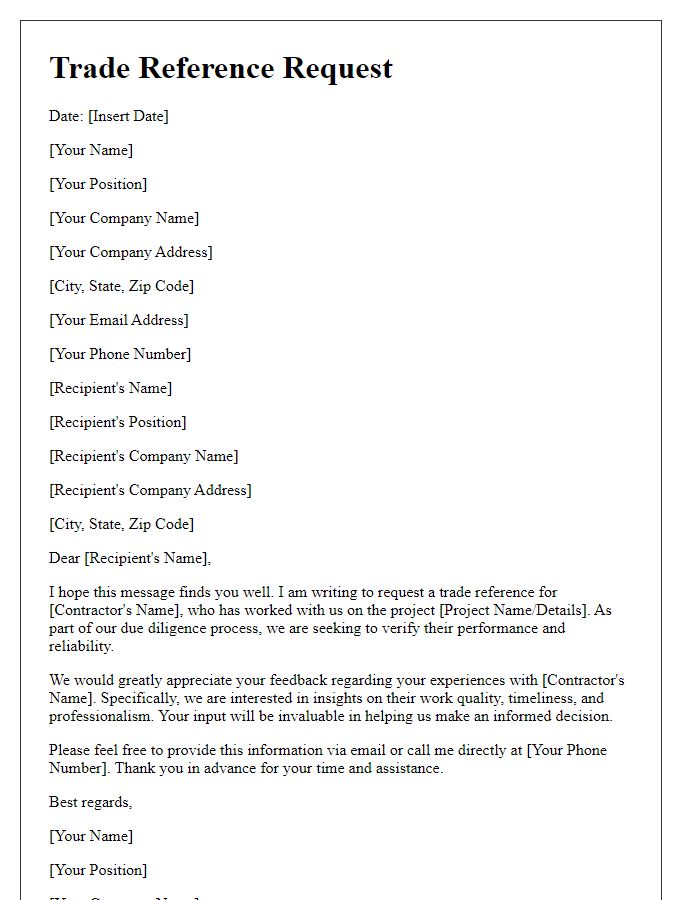


Comments